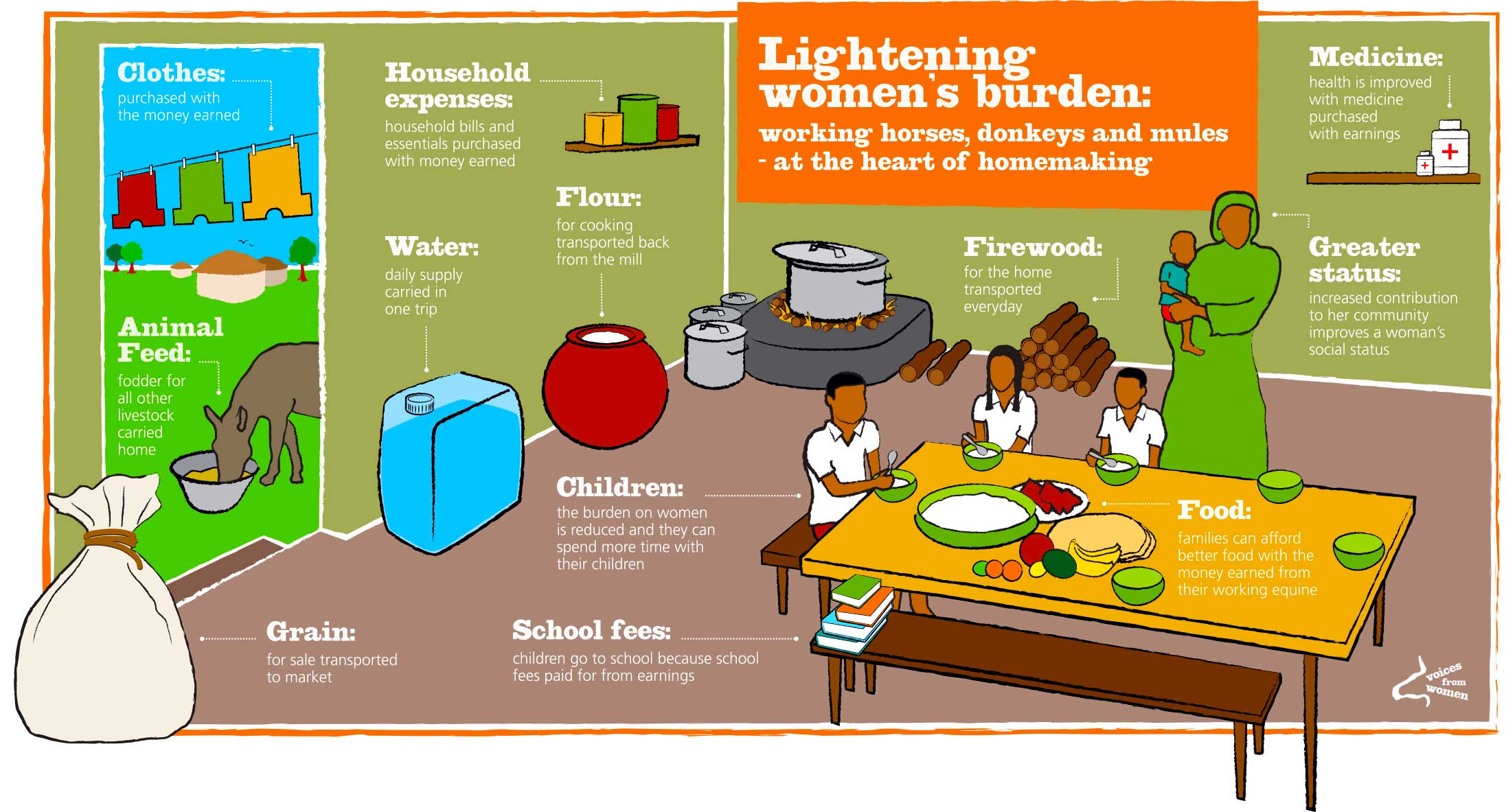A woman’s best friend – What’s the most helpful asset for women around the world?
Guest blog by The Brooke Organization – An international animal welfare organisation dedicated to improving the lives of working horses, donkeys and mules in the poorest parts of the world.
Like most people in the UK, I have a multitude of gadgets designed to make life easier. Without them, food would not be delivered, bills would go unpaid, I’d be much less efficient at work and home, and would fall off the radar in terms of friends and family.
Those of us with cars, kitchens and water on tap can easily forget that the majority of people live very differently. In the case of women and young girls in particular, domestic duties create a daily workload so hard and time-consuming it prevents them from pursuing an education.
There is one multifunctional device that makes the lives of these women manageable. Considered in the West as old technology, for millions of women living in the world’s poorest communities owning a horse, mule or donkey makes a substantial contribution to their empowerment. These animals improve women’s lives in multiple ways, more so than any other livestock or other animal, as this film shows.
As Mercy in Kenya describes brilliantly “Donkeys help us live a digital life…..they help with so many chores, making them easier, faster and simpler to do. We do not have to go the analogue way; fetching water from the river on our backs or carrying firewood on our heads.”
Way more helpful than a smart phone. As well as relieving domestic drudgery, horses, donkeys and mules make money for their female owner. School fees are paid, medicine and food purchased all with the money earned from the donkey’s work.
Horse power on the increase
Global economic issues such as fuel price rises, climate change and poverty mean dependency on horse power is increasing in some regions. If a horse, donkey or mule is unable to work because they are sick or lame, the impact on a woman can be devastating. Household income crashes, the daily burden on her increases, taking up her time and energy and the whole family suffers.
The Brooke
The animals themselves will never realise the significance of their work. But their female owners do. And so do we. The Brooke supports women to form Equine Welfare Groups, giving them the skills and knowledge they need to be good, caring owners. In return, their horse or donkey gives them income, status and a better chance in life for them and their children.
How can you help?
Just like women, working horses, donkeys and mules are ubiquitous, invisible and overworked. Help us get these invisible helpers noticed and their female owners trained, so that life can improve for both of them.
Coming out this week, our new report ‘Invisible Helpers’ highlights the vital role of horses, donkeys and mules in the lives of women in the world today.
Keep in touch with our work on Facebook and tells your friends about us Twitter.
Iqbal Bibi has been using a donkey cart since she got married, twenty years ago. The donkey cart is her family’s source of income. Her husband is sick and cannot work so she is the bread winner. She uses her donkey to travel and find work in the fields looking for dung daily from the surrounding areas where people have kept buffalos. She gets it for free or for a fee.
She uses dung to make dung cakes which she then sells to the market or villages nearby using the donkey cart. One cart of dung costs her around Rs 150 ($1.40) and a cart of dung cakes give us Rs 300-400 ($2.86-3.80) so she makes a profit of Rs 150-250 ($1.43-2.38). She also uses the donkey cart to earn extra income by transporting goods for people for a fee, earning Rs 35-40 ($0.33-0.38) per load.
The earnings from the donkey are used to buy flour, oil, clothes and bangles for her children, bread and dry cakes for her husband. She has also used the money to take up a loan from her land owner and purchased two young buffalos. Iqbal Bibi told us how she always thinks about how important the donkey is for her and her family and how it helps run her home. Her donkey provides income and therefore food and she makes sure that it receives food and is being treated well to live happily. If donkeys are happy, they will work happily.





No comments yet